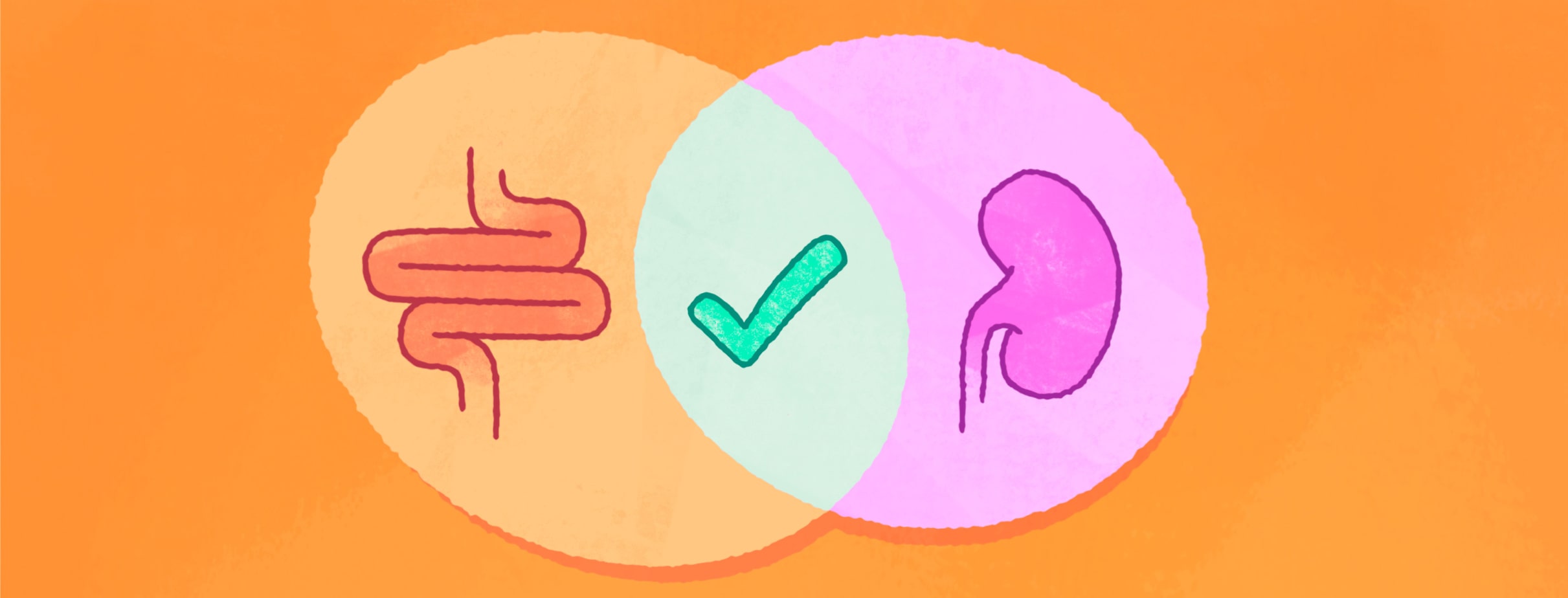Navigating Diets While Managing Multiple Diagnoses
Have you ever felt like your diet should be approached as a Venn diagram, where finding foods that satisfy your Crohn's symptoms but don't trigger other potential ailments feels like the most impossible task? If you answered "yes" to this question, you most likely have multiple diagnoses – and I 100% feel your pain.
Unfortunately, it is common for those who have Crohn's disease to also be diagnosed with another autoimmune disease or chronic illness. Some have Crohn's and lupus, or Crohn's and psoriasis. I have also encountered individuals living with either type 1 or type 2 diabetes along with their IBD.
Crohn's and kidney stones
Or, you may suffer from ailments such as kidney stones, which can also be a byproduct of Crohn's and require being mindful of the types of foods you eat so as not to cause more stones to form.
I personally suffer from kidney stones. And I have to strategically plan my diet around not affecting my Crohn's, plus not causing kidney stones, yet being healthy and balanced so that I retain as many important nutrients and vitamins as possible. It is exhausting!
But, here are a few tips I have found helpful while navigating a sometimes complicated diet.
Tips for eating with Crohn's + another illness
Create a food chart
I referenced the Venn diagram above, and in reality, creating a diagram or chart can really help you see what foods are allowed and which should be avoided. In my case of the Crohn's and kidney stone dilemma, I know that eating iron-rich foods such as spinach is beneficial to my body while living with Crohn's, however, spinach is an ingredient I should avoid if I want to keep my kidney stones at bay. I honestly list it as a "yellow light" food, since enjoying it in moderation is fine, but I shouldn't make it part of my daily diet.
On the other hand, something like chicken is a food that definitely gets the "green light" all around, but since I am gluten-free for my Crohn's, soy sauce would get a "red light."
If I were to choose the Venn diagram method, I would list all of the foods I could eat that are beneficial to my Crohn's in one circle, the foods I can eat that won't increase my chances of forming a kidney stone in the other circle, and then a list of foods that are A-OK for both where the circles overlap. This list will be smaller than the 2 outer circles, but at least I can see exactly what foods are safe for my body and conditions.
Always keep your "green light" foods on hand
Knowing what foods work for your body is essential in maintaining your physical and mental health. So, once you have identified your list, make sure you always have them stocked in your refrigerator, freezer, and/or pantry so that you are never obligated to eat something you should avoid. Planning is a key part in living confidently with multiple diagnoses, so having the ingredients you know are going to make you feel well will make meal planning and meal prepping easier, also eliminating another stressor along the way.
Be gentle on yourself
Things aren't always going to go according to plan, and you may find yourself consuming something you shouldn't (on purpose or accidentally) but that's OK. Occasional slips in your diet can be corrected without doing much harm, so if you are having difficulty staying the course, do what you can to eat what works for you most of the time, and go easy on yourself if it's not 100% perfect.
Feeling overwhelmed? This may help...
If you truly don't know where to start when tackling a diet for multiple illnesses, simply start by creating a food log. This will help you better recognize what foods are your trigger foods and which are safe. Then, you can get a better idea of which are your "green light" foods and create your go-to ingredient list from there. Taking this one step at a time is the only way you will be able to know what works for you and doesn't cause harm for any illness.
And, as always, be sure to consult with your doctor when navigating your diagnoses on what you should focus on eating and what foods you should avoid to make sure you are staying as safe and healthy as possible.

Join the conversation